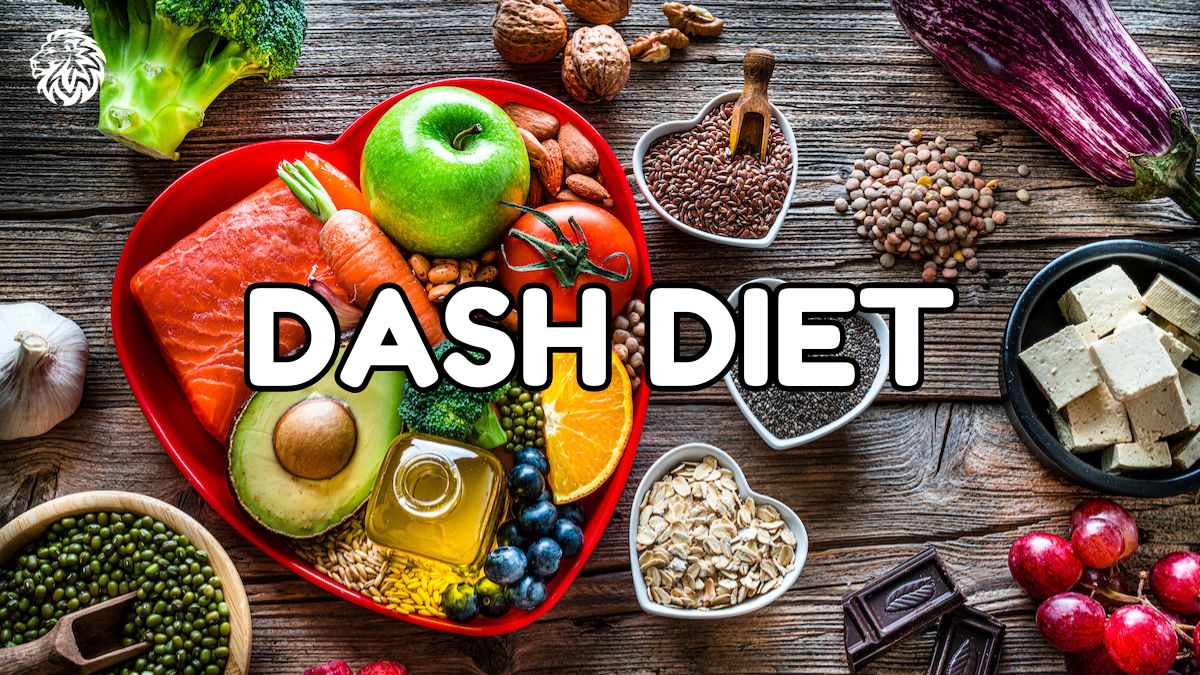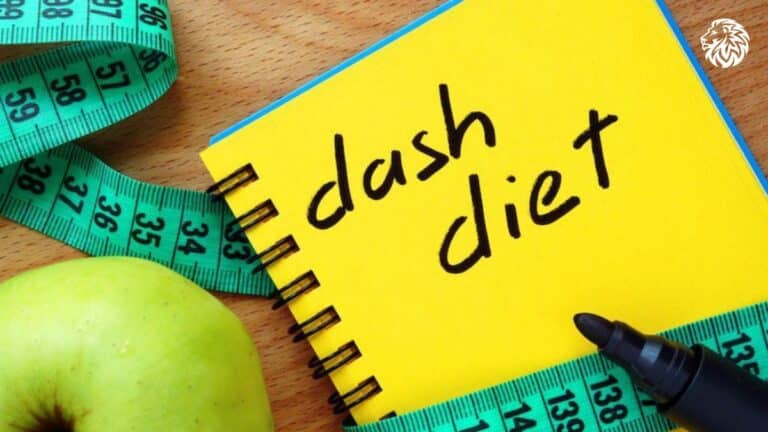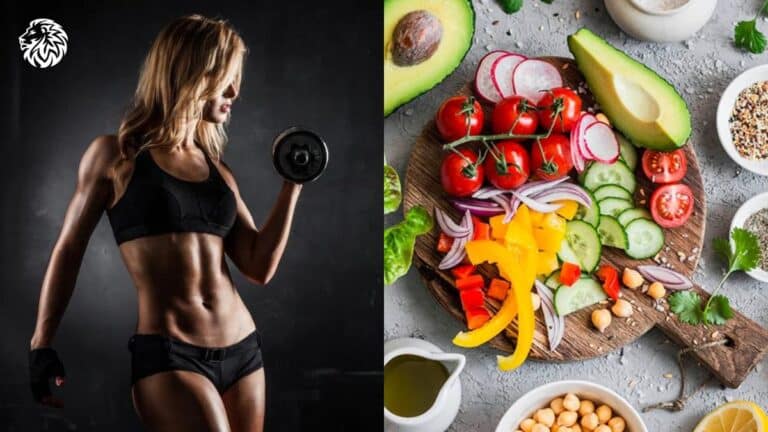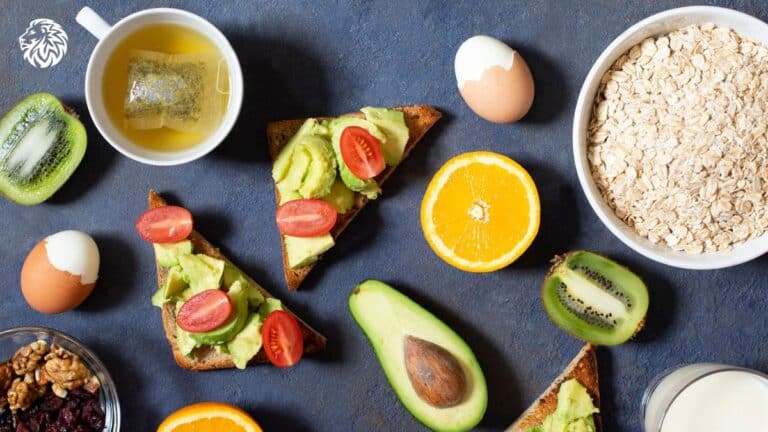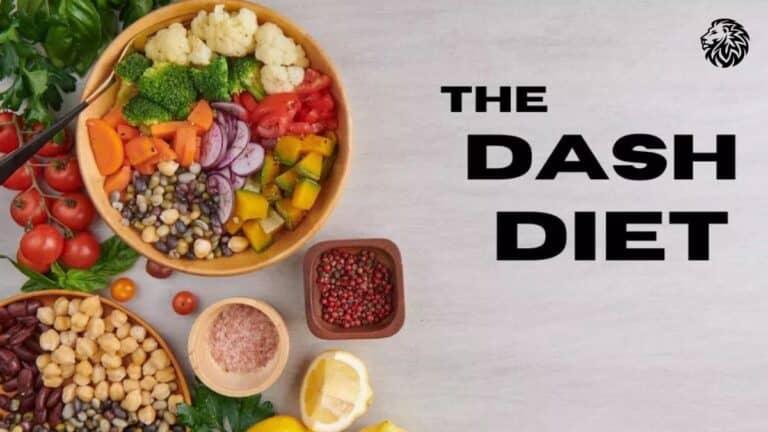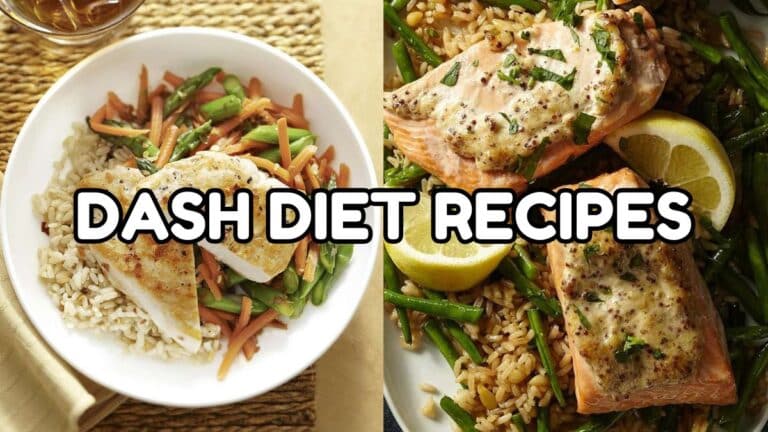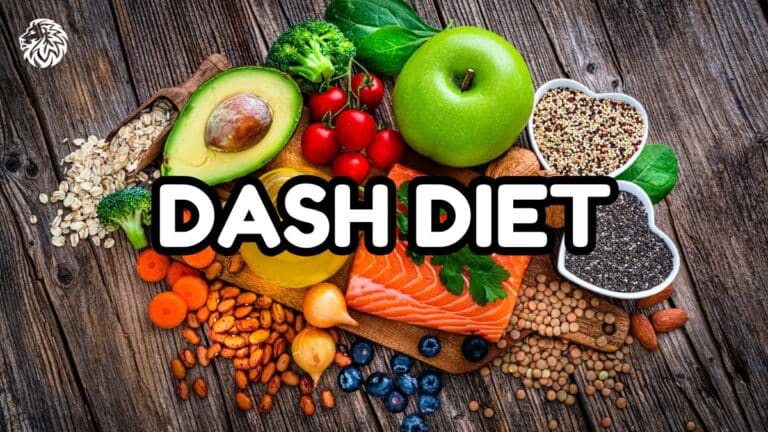The DASH (Dietary Approaches to Stop Hypertension) diet is known for its ability to lower blood pressure and promote overall heart health. It focuses on foods that are low in sodium and rich in nutrients like potassium, magnesium, and calcium. While the diet encourages plenty of fruits, vegetables, whole grains, and lean proteins, there are certain foods you should avoid to stay on track.
In this post, we’ll go over the key foods that are not allowed or should be limited when following the DASH diet, and why they don’t fit into its heart-healthy goals.
High-Sodium Foods
One of the main goals of the DASH diet is to reduce sodium intake, which means high-sodium foods are a no-go. Excess sodium can raise blood pressure by causing the body to retain water, increasing the strain on the heart. DASH diet followers are encouraged to limit their sodium intake to no more than 2,300 milligrams per day, with many people opting for even lower levels of 1,500 milligrams per day.
Common High-Sodium Foods to Avoid:
- Processed Meats: Ham, bacon, sausage, and deli meats are often packed with sodium to extend their shelf life.
- Canned Soups and Vegetables: While they may seem like convenient options, these products are typically high in sodium unless you opt for “low sodium” or “no salt added” versions.
- Salted Snacks: Chips, pretzels, and salted nuts all contribute to a higher sodium intake.
- Frozen Meals: Many frozen dinners and pre-packaged meals are loaded with sodium for flavor preservation.
- Fast Food: From burgers to fries, most fast-food options are extremely high in sodium, making them incompatible with the DASH diet.
Sugary Foods and Beverages
Sugar isn’t just bad for your waistline—it can also negatively impact your heart. Excessive sugar consumption is linked to an increased risk of high blood pressure, weight gain, and type 2 diabetes. The DASH diet emphasizes whole, nutrient-dense foods, which naturally limits the amount of added sugars in your diet.
Foods High in Sugar to Avoid:
- Soda and Sugary Drinks: Soft drinks, energy drinks, and sweetened teas can be full of sugar and offer little to no nutritional value.
- Candy and Sweets: Avoid candy bars, sugary snacks, and desserts like cakes, cookies, and pastries.
- Sugary Breakfast Cereals: Many popular cereals contain high levels of added sugar, so it’s best to choose options like oatmeal or whole grain cereals without added sweeteners.
Saturated and Trans Fats
The DASH diet promotes heart health by encouraging healthy fats from sources like nuts, seeds, and oils such as olive oil. On the flip side, foods high in saturated and trans fats should be avoided. These unhealthy fats can increase your risk of heart disease by raising levels of LDL (bad) cholesterol.
Fats to Avoid:
- Full-Fat Dairy Products: Whole milk, cream, and cheese are high in saturated fats. The DASH diet encourages low-fat or fat-free alternatives.
- Fried Foods: Anything deep-fried, including fries, fried chicken, and doughnuts, typically contains unhealthy fats.
- Baked Goods: Many packaged cookies, pies, and pastries are made with trans fats to extend shelf life, making them poor choices for DASH followers.
- Butter and Lard: Instead of using butter or lard for cooking, the DASH diet recommends healthier alternatives like olive oil or avocado oil.
Red Meat
While the DASH diet doesn’t necessarily ban red meat, it encourages limiting it due to its high content of saturated fat. Consuming large amounts of red meat can contribute to higher cholesterol levels, which may increase the risk of heart disease.
Types of Red Meat to Limit:
- Beef: Instead of regular ground beef, opt for lean cuts or ground turkey.
- Pork: Bacon, sausage, and other pork products are high in fat and sodium, so they should be eaten sparingly.
- Lamb: Like other red meats, lamb contains saturated fat and is best eaten occasionally in small portions.
Refined Grains
The DASH diet emphasizes whole grains over refined grains because they provide more fiber, vitamins, and minerals. Refined grains, on the other hand, have been stripped of many nutrients during the refining process and can cause spikes in blood sugar levels, which may lead to overeating and weight gain.
Refined Grains to Avoid:
- White Bread: Swap white bread for whole wheat or other whole grain options.
- White Pasta: Instead of regular pasta, look for whole wheat or legume-based varieties.
- Pastries and Cakes: Most baked goods are made with refined flour, which lacks the nutritional benefits of whole grains.
- Instant Rice: Choose brown rice or other whole grains like quinoa, bulgur, or farro instead.
Full-Fat Dairy Products
Dairy can be a good source of calcium and protein, but the DASH diet encourages choosing low-fat or fat-free options. Full-fat dairy products, like whole milk and cream, contain high levels of saturated fat, which can raise cholesterol levels and contribute to heart disease.
Full-Fat Dairy Products to Avoid:
- Whole Milk: Switch to skim or 1% milk.
- Cream: Opt for plant-based or low-fat creamers instead.
- Full-Fat Cheese: Instead of regular cheese, try low-fat or part-skim varieties.
Processed Foods
Processed foods often contain a combination of ingredients that are not DASH-friendly—high sodium, added sugars, and unhealthy fats. This makes them a poor choice for anyone following the diet.
Common Processed Foods to Avoid:
- Instant Noodles: These quick meals are loaded with sodium and unhealthy fats.
- Packaged Snack Foods: Chips, crackers, and other packaged snacks often contain trans fats and excess sodium.
- Frozen Pizza: Many frozen pizzas are high in both sodium and unhealthy fats, making them a poor fit for the DASH diet.
Alcohol
The DASH diet doesn’t entirely ban alcohol, but it recommends moderation. Excessive alcohol consumption can raise blood pressure and contribute to weight gain. If you choose to drink, stick to the recommended guidelines—no more than one drink per day for women and two drinks per day for men.
Conclusion
While the DASH diet is flexible and doesn’t completely eliminate any food groups, there are several foods that should be avoided or eaten sparingly to achieve the best results. By cutting back on high-sodium, sugary, and fatty foods, and focusing on nutrient-dense options like fruits, vegetables, lean proteins, and whole grains, you can improve your heart health and lower your blood pressure.
If you’re following the DASH diet, keeping these restricted foods in mind will help you stay on track and reach your health goals.
Frequently Asked Questions About Foods to Avoid on the DASH Diet
1. Can I have processed foods on the DASH diet?
Processed foods are generally discouraged on the DASH diet due to their high sodium, unhealthy fats, and added sugars. It’s best to opt for fresh or minimally processed foods.
2. Is red meat completely off-limits on the DASH diet?
Red meat isn’t completely banned, but it should be consumed in limited amounts due to its high content of saturated fats. Lean cuts are preferable.
3. Can I eat dairy on the DASH diet?
Yes, dairy is allowed, but it should be low-fat or fat-free. Full-fat dairy products like whole milk and cheese are discouraged because of their saturated fat content.
4. What is the recommended daily sodium intake on the DASH diet?
The DASH diet recommends limiting sodium intake to 2,300 mg per day, with an ideal goal of reducing it further to 1,500 mg per day.
5. Are sugary drinks allowed on the DASH diet?
Sugary drinks like soda and sweetened teas are not recommended. The DASH diet encourages water, unsweetened teas, or drinks with no added sugars.
6. Can I drink alcohol on the DASH diet?
Alcohol is allowed in moderation—up to one drink per day for women and up to two drinks per day for men.
7. Are snacks like chips and crackers allowed on the DASH diet?
Most salty snacks like chips and crackers are discouraged due to their high sodium content. Opt for low-sodium alternatives or fresh fruits and vegetables instead.
8. Can I eat fast food while following the DASH diet?
Fast food is generally high in sodium and unhealthy fats, so it’s best avoided. However, some restaurants offer low-sodium or healthier options.
9. Why should I avoid refined grains on the DASH diet?
Refined grains, like white bread and pasta, are stripped of essential nutrients. The DASH diet encourages whole grains like brown rice and whole wheat bread.
10. Can I have desserts on the DASH diet?
Desserts high in added sugars and unhealthy fats should be limited. You can enjoy healthier options like fresh fruit or low-fat yogurt for a treat.
